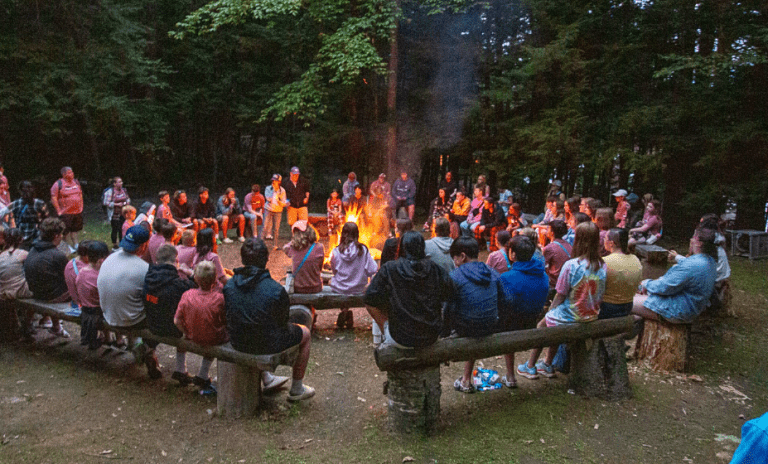
At first glance, Camp Kita looks like a regular summer camp. It’s located in Maine, and its 75 campers spend the week learning how to fish and canoeing. In most cases, they leave with lifelong friendships. However, the campers of Camp Kita all have one tragic and unique commonality: they’re all survivors of suicide loss.
Believed to be the first of its kind when it was established in 2013, Camp Kita is a tuition-free summer camp for children ages 8 to 17 who have experienced a loved one’s suicide. The camp purposefully doesn’t define “loved one,” as they say the definition of a loved one differs for every family. Siblings Sydney, Isaiah, and Morgan Mosher founded Camp Kita together. They know firsthand what campers are experiencing: in 2003, they lost their father to suicide.
In a phone interview with Fox News Digital, Morgan Mosher said, “So when we initially got the idea, we were thinking we would do just like, you know, maybe a camping weekend, or something with a canoe trip, with suicide survivors. And it evolved into the idea of an actual, more structured summer camp.” She added that the first year of Camp Kita had five campers and was funded by an Indiegogo pop campaign. The Mosher siblings wanted the program to be nature-based due to their father’s love of nature.
They started the Camp Kita Foundation and raised just enough money that first year to rent a cabin for five campers. Morgan Mosher said, “Then we just took off with hope and a prayer and really kicked off our first season.” After that first season, Camp Kita continued to grow. The next year, the organization welcomed 25 campers plus additional mental health support staff. Today, the camp is limited to 75 campers but is looking to expand its options with additional sessions, among other programs. Mosher said most of Camp Kita’s growth is attributed to word of mouth.
The setting of a sleepaway summer camp provides a “really safe bubble for our campers,” said Mosher. When campers arrive, they “immediately know that this is an environment that is safe for them to kind of let their inhibitions go about their loss,” said Mosher. That loss “becomes something that they don’t need to directly even ever say because everybody already knows. There’s already that equal understanding.”
Campers at Camp Kita “have a full day of traditional summer camp activities,” like a ropes course, canoeing, archery and soccer. But for part of the day, they have “Kita Group,” led by a clinician. These groups are broken up by age, and campers are in the same group for the entire week of camp. In Kita Group, campers “can really do some deep loss-oriented processing,” said Mosher. “And they come right back and into the restorative piece.” Additionally, three 24/7 crisis counselors are available at any time if a camper needs support to help process something or if an upsetting memory is triggered.
After 10 years of holding successful camps, including a year of a virtual “camp in a crate” done at the campers’ homes during the summer of 2020, Camp Kita wants to add additional programming and evolve into its next phase: the “Kita Center.” The Kita Center will have a permanent home on Loon Pond in Acton, Maine. It will provide a broader range of programming than just Camp Kita. Presently, Camp Kita uses other camp facilities after their seasons end.
In addition to multiple week-long sessions of Camp Kita during the summer months, the Kita Center will have year-round programming for other groups at a higher risk of suicide, including veterans and postpartum mothers.


